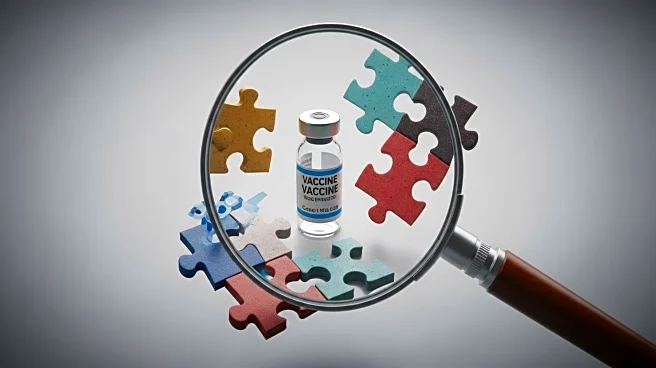What's Happening?
Health and Human Services Secretary Robert F. Kennedy Jr. is facing significant scrutiny over his vaccine policies as part of his Make America Healthy Again (MAHA) movement. This week, a reconstituted CDC advisory panel, appointed by Kennedy, will meet to discuss potential changes to vaccine recommendations. The panel includes members who have previously questioned vaccine safety. Additionally, former CDC Director Dr. Susan Monarez is set to testify about her abrupt firing and allegations that Kennedy is undermining vaccine standards. Kennedy's MAHA agenda also includes initiatives to improve American diets and address environmental concerns, but his vaccine stance has drawn the most attention and controversy.
Why It's Important?
Kennedy's actions could have far-reaching implications for public health policy and vaccine accessibility in the United States. His approach has raised concerns among public health experts about the potential impact on vaccine uptake and public trust in vaccination programs. The changes could affect how vaccines are recommended and administered, potentially leading to decreased vaccination rates and increased vulnerability to preventable diseases. The controversy also highlights the tension between public health priorities and individual choice, a key theme in Kennedy's MAHA movement. Stakeholders, including healthcare providers, policymakers, and advocacy groups, are closely watching the developments and their potential impact on public health outcomes.
What's Next?
The upcoming CDC advisory panel meeting could result in significant changes to vaccine recommendations, affecting public health policy and vaccine accessibility. The testimony of Dr. Susan Monarez may provide further insights into the internal dynamics and decision-making processes within the HHS under Kennedy's leadership. The outcomes of these events could influence future policy decisions and public discourse on vaccines and public health. Political leaders and public health experts are likely to respond, with potential implications for Kennedy's standing and the broader MAHA movement.









